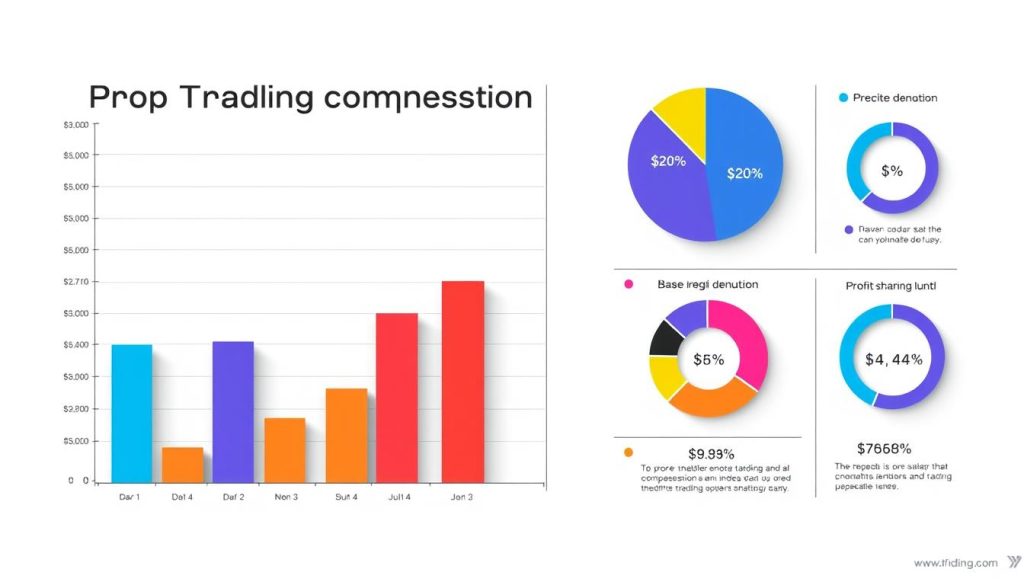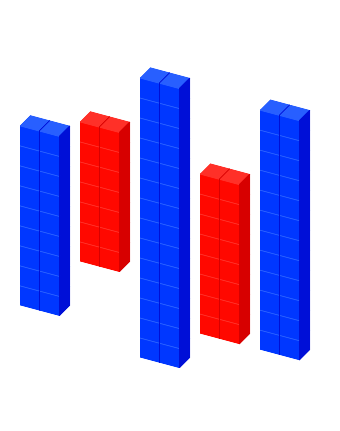The world of proprietary trading is growing fast, offering great chances for skilled traders in the U.S. Prop trading firms are looking for people who can handle complex financial markets well. They want those who can make smart, strategic moves.
Getting a job in proprietary trading is getting tough, but top firms are eager to find the best. They offer advanced tools, lots of money to trade with, and training to help you succeed.
Top trading firms are growing their teams, seeing the value of high-performing traders. They need people who can learn fast, use the latest trading tech, and think critically.
Key Takeaways
- Prop trading firms are actively recruiting skilled professionals
- Advanced technological resources are available for top traders
- Significant earning potential exists in proprietary trading
- Technical skills and market knowledge are critical for success
- Competitive compensation structures attract top talent
Understanding Proprietary Trading: A Career Overview
Proprietary trading is a thrilling career for those who love the fast-paced world of finance. Prop firms are always looking for skilled traders to join their teams. These traders work with the firm’s money, aiming to make profits.
Proprietary trading is different from regular trading. Instead of using their own money, traders use their firm’s capital. This approach offers a unique chance to earn big, with the potential for high rewards.
Key Differences Between Prop Trading and Traditional Trading
There are key differences between proprietary trading and traditional trading:
- Capital source: Using firm’s funds instead of client investments
- Risk management: More aggressive strategies with institutional backing
- Compensation structure: Performance-based earnings with potential higher returns
- Professional development: Intensive training and continuous skill enhancement
Essential Skills for Proprietary Trading Success
To succeed in prop trading, you need more than just market knowledge:
- Advanced analytical thinking
- Rapid decision-making capabilities
- Strong mathematical and statistical understanding
- Emotional discipline under pressure
- Technological proficiency
Industry Growth and Market Opportunities
The world of proprietary trading is growing fast, with more chances for skilled traders. Prop firms are seeing big growth in areas like algorithmic trading and cryptocurrency. They’re also investing in new financial technologies.
“The future of prop trading lies in innovation, adaptability, and continuous learning.” – Financial Markets Expert
New markets and tech are opening up big opportunities for those in proprietary trading. It’s a field that’s always changing, offering chances for those who are ready to learn and adapt.
Leading Prop Trading Firms Hiring in 2024

The world of proprietary trading is growing fast in 2024. It offers great chances for skilled traders. There are many job openings in top prop trading firms across the United States.
Many big proprietary trading firms are looking to grow their teams. They want traders who can handle complex financial markets well. These traders need to be strategic and precise.
- Citadel Securities – Known for advanced algorithmic trading
- Jane Street – Specializing in quantitative trading strategies
- Two Sigma – Focusing on technology-driven trading
- Optiver – Emerging leader in high-frequency trading
Those interested in prop trading careers should get ready for tough hiring processes. These firms look for people with strong analytical skills. They also want those with a math background and creative ideas.
| Firm | Trading Focus | Job Openings |
|---|---|---|
| Citadel Securities | Algorithmic Trading | Multiple Quant Positions |
| Jane Street | Quantitative Strategies | Research Traders |
| Two Sigma | Technology-Driven Trading | Data Science Roles |
| Optiver | High-Frequency Trading | Trading Analyst Positions |
“The future of trading is dynamic, technology-driven, and requires continuous learning.” – Industry Expert
Those looking into trading jobs should work on their technical skills. They should also understand market trends and keep up with new trading tech.
Qualifications and Requirements for Prop Trading Positions
Getting into prop firm trader jobs is tough. You need to know what it takes to succeed in proprietary trading. Aspiring traders must get ready to meet the high standards of top trading firms.
Prop trading firms want candidates with a strong mix of education, technical skills, and experience. The right qualifications can really help you get a job in this exciting field.
Educational Background Essentials
Top prop trading firms look for candidates with a solid education in:
- Finance and Economics degrees
- Mathematics and Statistics
- Computer Science
- Quantitative disciplines
Critical Technical Skills and Certifications
For prop firm trader jobs, you need to show you’re good at:
- Programming languages (Python, R, C++)
- Advanced data analysis tools
- Financial modeling techniques
- Risk management certifications
Experience Level Expectations
Proprietary trading opportunities vary by experience level:
- Entry-level positions: Strong academic background and internship experience
- Mid-level roles: Demonstrated trading track record and advanced technical skills
- Senior positions: Proven performance and specialized trading expertise
To succeed, you need both theory and practical skills. This will help you stand out in the competitive prop trading job market.
Compensation Structures in Proprietary Trading

Careers in proprietary trading have unique pay models. They differ from traditional finance jobs. Prop trading desks look for skilled people who can make money through their trading.
The pay structure in prop trading includes several parts:
- Base salary
- Performance-based bonuses
- Profit-sharing arrangements
- Percentage of trading profits
Traders can make more money than those in regular finance jobs. Choosing the right prop trading firm is key to earning well.
Pay can change a lot based on a few important things:
- Trading experience
- Performance consistency
- Trading strategies used
- Market conditions
Top traders in prop trading can make a lot of money. Some make over $1 million a year. This high potential draws in skilled traders.
Success in prop trading depends on how well you do and your trading skills.
Current Prop Trading Firms Hiring: Market Analysis

The world of proprietary trading is changing fast in 2024. Trading firms are now looking for new ways to find and keep the best talent. They are also working to make their operations more efficient.
Today, there are many ways for trading professionals to find jobs. This shows big changes in how we work. Prop trading firms are getting creative to draw in skilled traders.
Remote Trading Opportunities
Remote trading is becoming a big deal in prop trading. It offers many benefits, such as:
- Global talent access
- Reduced operational costs
- Enhanced work-life balance
- Technology-driven performance tracking
On-Site Trading Positions
On-site trading roles are still important for firms that value teamwork. These jobs provide:
- Direct team interaction
- Immediate communication channels
- Real-time strategy development
- Sophisticated trading infrastructure
Hybrid Work Models
Hybrid work models are becoming more popular in prop trading. They mix remote and in-office work. This gives traders the best of both worlds.
Top prop trading firms are making their workplaces more flexible. They use technology to meet the needs of their traders. The future of trading careers will depend on how well firms adapt to these changes.
Application Process and Recruitment Timeline

Getting into prop firms requires careful planning and knowing how they pick traders. Prop trading careers need a clear plan for applying and being evaluated.
The journey to get hired has key steps that check your trading skills and tech abilities. You must be ready for a detailed screening that’s more than just filling out a form.
- Initial Online Application Submission
- Technical Skills Assessment
- Trading Simulation Evaluation
- Final Interview and Offer Negotiation
Most proprietary trading firms use rigorous screening to find the best. You’ll face a series of tests that check your knowledge and how well you trade.
| Application Stage | Duration | Key Evaluation Criteria |
|---|---|---|
| Online Application | 1-2 weeks | Resume Screening |
| Technical Assessment | 1-3 weeks | Trading Knowledge and Skills |
| Trading Simulation | 2-4 weeks | Performance Under Pressure |
| Final Interview | 1 week | Cultural Fit and Advanced Skills |
“Success in prop trading recruitment comes from preparation, technical proficiency, and demonstrating adaptability in dynamic market conditions.”
Pro Tip: Show off your analytical skills, risk management, and ability to handle pressure. These are key during the recruitment for prop trading careers.
Training Programs and Development Opportunities
Prop trading careers need constant learning and skill growth. Proprietary trading firms know how vital strong training is. It helps traders do well in a tough financial world.

Getting a job in a trading firm is more than just knowing how to trade. It’s about growing professionally. This includes mentorship, learning, and planning your career.
Mentorship Programs: Learning from Industry Experts
Top prop trading firms have mentorship programs. They match new traders with experienced ones. This gives them:
- One-on-one coaching sessions
- Real-time trading strategy talks
- Feedback on their performance
- Personal plans for improving skills
Continuing Education Support
Continuous learning is key to success in prop trading. Firms spend a lot on learning resources like:
| Education Type | Focus Area | Frequency |
|---|---|---|
| Advanced Trading Workshops | Market Analysis Techniques | Quarterly |
| Risk Management Seminars | Compliance & Strategy | Bi-Annual |
| Technology Update Training | Trading Platform Skills | Monthly |
Career Advancement Paths
Getting ahead in prop trading means clear paths for growth. Traders can move up to:
- Junior Trader to Senior Trader
- Specialized Trading Strategies
- Leading a team
- Advisory roles
By taking advantage of training and development, traders can move from entry-level to leadership roles.
Top Cities for Proprietary Trading Careers
Finding the right place for prop firm trader jobs is key. The United States has many great spots for trading. Each city has its own benefits for traders looking to grow.
Top cities for prop trading careers include:
- New York City – The financial center with the most trading firms
- Chicago – Known for derivatives and futures trading
- San Francisco – A hub for tech and finance innovation
- Boston – Offers a strong environment for quantitative trading
When choosing a city for trading, consider a few things:
- How easy it is to get into the market
- Opportunities for networking
- The quality of technology available
- The cost of living
- Resources for professional growth
Austin and Miami are becoming popular choices too. They offer lower costs and a chance to work in new trading environments. These cities are growing fast in the financial tech world.
Choosing the right location can really help your trading career and earnings.
It’s important to look at each city’s trading scene. Think about more than just where it is to find the best trading opportunities.
Technology Requirements and Trading Platforms
Careers in proprietary trading need the latest technology. Prop trading desks look for people who know how important tech is. They use systems that give real-time market info and fast trade execution.

For success in trading, you need to know about several key tech areas. These are important for doing well in prop trading.
Essential Trading Software
Traders need strong software for market analysis and quick decisions. The main software needs are:
- Advanced charting tools
- Real-time market data feeds
- Order management systems
- Risk assessment platforms
Hardware Requirements
For prop trading, you need fast computers. Here are the best specs:
| Component | Minimum Specification |
|---|---|
| Processor | Intel Core i7 or AMD Ryzen 7 |
| RAM | 32GB DDR4 |
| Graphics Card | NVIDIA RTX Series |
| Monitor Setup | Multiple 4K Displays |
Connectivity Specifications
Fast internet is key for trading careers. Traders should focus on:
- Low-latency internet connections
- Dedicated fiber optic lines
- Backup internet services
- Secure VPN configurations
Investing in top-tier technology is not just an option—it’s a requirement for success in modern proprietary trading environments.
Risk Management and Compliance Considerations

Top prop trading firms look for the best talent. They focus on strong risk management strategies. It’s key for both getting hired and succeeding in the long run.
Risk management in prop trading is vital. It keeps traders and financial firms safe. Firms want candidates who can handle risks well.
- Position Sizing: Limiting individual trade exposure to prevent significant capital losses
- Stop-Loss Orders: Automatically closing positions to minimize potential drawdowns
- Portfolio Diversification: Spreading investments across different markets and instruments
- Volatility Analysis: Assessing market conditions and potential risk scenarios
Compliance is also crucial. Traders must follow strict rules and keep detailed records. Important compliance points include:
- Following Securities and Exchange Commission (SEC) guidelines
- Maintaining transparent trading records
- Implementing ethical trading practices
- Conducting regular internal risk assessments
Prop trading firms want candidates with both technical skills and risk management knowledge. Understanding risk strategies makes traders more attractive and boosts their career chances.
“Risk management is not about eliminating risk, but understanding and managing it effectively.” – Professional Trading Strategist
Interview Preparation and Tips for Success
Getting into prop firms hiring traders is tough. You need to know a lot about markets and be confident. Learning how to ace interviews is key to getting a job in this exciting field.
Interviews for proprietary trading careers are not just Q&A. They check if you really get markets, can solve problems, and have what it takes to be a trader.
Preparing for Common Interview Questions
Prop firms want to see if you know your stuff about markets and can think critically. Be prepared to show:
- Deep understanding of financial markets
- Strong analytical thinking skills
- Ability to explain complex trading strategies
- Passion for financial markets
Technical Assessment Guidelines
Technical tests are a big part of interviews. You should get ready for:
- Quantitative problem-solving
- Market analysis exercises
- Risk management scenarios
- Trading platform simulations
Mastering Mock Trading Scenarios
Mock trading tests how you make decisions in real situations. Practice is key to showing your potential. Work on:
- Quick decision-making under pressure
- Understanding market dynamics
- Implementing risk management techniques
- Showcasing adaptive trading strategies
By being well-prepared and showing both technical skills and passion, you can boost your chances in proprietary trading careers.
Networking and Industry Connections
Getting into prop trading careers is tough, but networking can help. Professional connections can open doors to jobs that aren’t listed online. It’s key for those wanting to enter this fast-paced field.
Here are some ways to network well in prop trading:
- Go to financial conferences and trading seminars
- Join trading groups on LinkedIn and forums
- Take part in online webinars and virtual events
- Reach out to your school’s alumni
Digital platforms have changed how we make industry connections. Social media and professional sites offer great chances to meet traders, recruiters, and experts. Sites like LinkedIn let traders show off their skills, share ideas, and find new career paths.
Here are some tips for good networking:
- Keep your online profile professional
- Participate in discussions wisely
- Follow and talk to leaders in trading firms
- Share your market insights and analysis
Building strong relationships can lead to mentorship, inside info on jobs, and career growth. In prop trading, personal connections and referrals are very important. So, networking is a must for lasting success.
Conclusion
The world of prop firm trader jobs is changing fast, offering new chances for skilled traders. Proprietary trading has grown a lot, making it a great place for those with sharp analytical skills and market knowledge.
Traders starting out need to work on a wide range of skills. They should know a lot about technology, managing risks, and making smart plans. Top prop trading firms want people who can quickly adapt, use technology well, and understand the financial markets deeply.
To do well in this field, traders must keep learning and build a strong network. They should always be looking to improve their skills, keep up with market changes, and use the latest trading tools. This helps them stay ahead in the fast-paced world of finance.
The future of proprietary trading looks bright, with more jobs for skilled traders. By focusing on personal growth, being strategic, and staying open to new chances, traders can have fulfilling careers in this exciting field.

